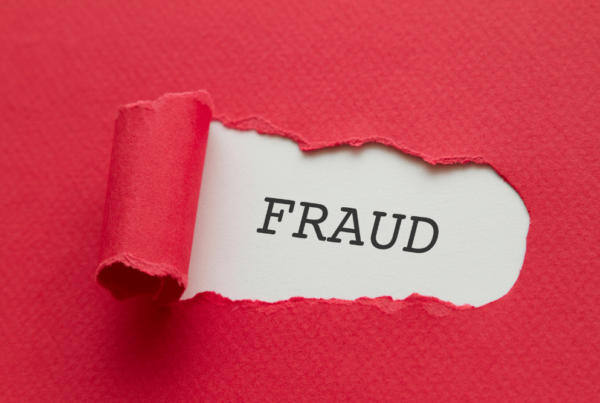WHITE COLLAR CRIMES
Federal Cryptocurrency Fraud Defense Lawyer
Federal Cryptocurrency Fraud Crimes
According to CipherTrace’s 2020 Cryptocurrency Crime and Anti-Money Laundering Report, cryptocurrency thefts, hacks and fraud cost investors $1.9 billion in 2020—the second-highest annual value of cryptocurrency crime recorded to date. In 2019, the PlusToken Ponzi scheme alone in 2019 cost investors $2.9 billion alone, contributing to the $4.5 billion annual value of cryptocurrency crime, making 2019 the year with the largest annual amount yet recorded. Although the total annual loss has decreased between 2019 and 2020, the value stolen by criminal actors has increased. Bitcoin is the cryptocurrency most commonly used for the purchase or sale of illegal drugs, weapons and cyber and banking credentials. As the use and popularity of cryptocurrency spread, with more and more businesses accepting it as payment, the growing number of fraud reports has drawn legal attention from the federal government as regulatory and policy making bodies begin to influence the use of cryptocurrency and the operation of cryptocurrency markets.
What is cryptocurrency?
Cryptocurrency is a form of digital money. It lives entirely online. Bitcoin, Ethereum, and Tether are three common cryptocurrencies, but more continue to be created. Similar to its traditional bill and coin counterparts, cryptocurrency can be used to make quick payments (although without the legal protections of credit and debit card transactions). Cryptocurrency can also be bought and sold as an investment just like a foreign currency. Cryptocurrency also differs from traditional currencies in a few fundamental ways. They are not federally insured like U.S. bank deposits. Additionally, the value of cryptocurrency can also be far more volatile than traditional currencies, making it a far riskier investment, and a breeding ground for fraud.
Who investigates alleged offenders?
Within the Federal Bureau of Investigation’s (FBI) Criminal Investigative Division is a special team entrusted with leading efforts to prevent and fight cryptocurrency money laundering and fraud. The Federal Trade Commission (FTC), the Commodity Futures Trading Commission (CFTC) and the Securities and Exchange Commission (SEC) work in tandem to receive reports of suspected fraud and participate in the federal investigation of alleged offenders.
How do federal prosecutors charge suspected offenders, and what are the possible penalties?
Federal prosecutors have a cache of statutes that can be applied to nearly any set of facts surrounding an alleged offense. Three of the federal crimes with which alleged offenders of a cryptocurrency crime are frequently charged include: securities fraud, wire fraud and money laundering as well as conspiracies to commit the same.
Securities fraud
When targeting securities fraud, prosecutors may charge an alleged offender under The Securities and Exchange Act of 1934 (codified as 15 U.S.C. §§78j(b), 78ff), or under Title 18 of the U.S. Code, chapter 63 fraud statutes (18 U.S.C. §1348).
To convict an alleged offender under §§78j(b), 78ff, federal prosecutors must prove beyond a reasonable doubt that the defendant willfully and knowingly schemed to defraud, made a false statement of material fact, omitted a material fact making the defendant’s statements misleading, or engaged in any fraudulent or deceitful act upon another, in connection with the purchase or sale of a security.
‘Willfully,’ as defined under §78ff, does not require the government to prove the defendant knew their conduct was actually unlawful, only that they knew their scheme or conduct was wrongful. To sustain a conviction for securities fraud, the federal government need only show the defendant had a reckless disregard for the truthfulness or untruthfulness of their conduct.
Defendants convicted under §78ff, face penalties of up to 20 years in prison, fines up to $5,000,000, or both. If the defendant is business or other entity, fines may reach $25,000,000.
Similarly, §1348 criminalizes the knowing execution, or attempted execution, of a scheme to either:
- Defraud anyone in connection with a commodity future, or option for a commodity future, or any securities registered under section 12 of the Securities Exchange Act of 1934 (15 U.S.C. §78l) or of an issuer required to file reports under section 15(d) of 15 U.S.C. §78o(d); or
- Obtain under false pretenses any money or property in connection with the purchase or sale of a commodity future, or option for a commodity future, or any securities registered under section 12 of the Securities Exchange Act of 1934 (15 U.S.C. §78l) or of an issuer required to file reports under section 15(d) of 15 U.S.C. §78o(d).
Under §1348, convicted defendants face up to 25 years in prison, fines up to $250,000, or both. If the defendant is a business or other organization, fines may be as much as $500,000.
Wire fraud
Broad in scope, §1343 requires a federal prosecutor to show an alleged offender knowingly devised or participated in a scheme to defraud using false pretenses, representations or promises about a material fact with the intent to defraud and communicated via wire (including email or website communication) in furtherance of the fraud. Additionally, each instance of wire communication in furtherance of fraud may constitute a separate violation of §1343.
Those convicted under §1343 face up to 20 years in prison and fines up to $250,000. However, if the offense affects a financial institution, or is connected to a declared major disaster or emergency, offenders face up to thirty years in prison. If the offense involves telemarketing or email marketing, the offender faces an additional 5 years in prison (in addition to the wire fraud sentence). For offenders who target persons over the age of fifty-five, an extra ten years can be added to a prison sentence.
Money laundering
Money laundering describes the taking of money or property generated by a Specified Unlawful Activity (SUA) and moving, attempting or conspiring to move it in a prohibited manner. SUAs constitute a relatively narrow list of crimes, some of which include financial transactions associated with drug and violent crimes, fraud, smuggling and others. 18 U.S.C. §§1956, 1957 defines eleven distinct money laundering crimes, grouped into four categories:
- Domestic money laundering—§1956(a)(1)
- International money laundering—§1956(a)(2)
- Money laundering stings (or, reverse money laundering)—§1956(a)(3)
- Money laundering spending—§1957
Defendants convicted of a §1956 offense face twenty years in prison; convictions under §1957 carry a sentence of up to ten years. Courts may also sentence defendants to fines up to $250,000 in addition to a prison term.
Cryptocurrency Fraud in the News
On March 5th, 2021, federal prosecutors in Manhattan indicted John McAfee, founder of the antivirus software company bearing his name. Prosecutors accused McAfee and his associates of committing engineering schemes to defraud cryptocurrency investors out of more than $11 million. According to prosecutors, McAfee, used a “pump-and-dump” scheme in which he purchased large amounts of cryptocurrency cheaply, and then made false and misleading statements on social media to entice investors and artificially inflate the market prices of the cryptocurrency—the pump. Then, McAfee unloaded the cryptocurrency collecting more than $2 million in illegal profits—the dump.
McAfee and his partners face criminal charges of commodities and securities fraud conspiracy, wire fraud conspiracy, wire fraud and money laundering conspiracy, along with multiple civil charges filed by the SEC and Commodities Futures Trading Commission (CFTC).
White Collar Crimes
Recent Posts






